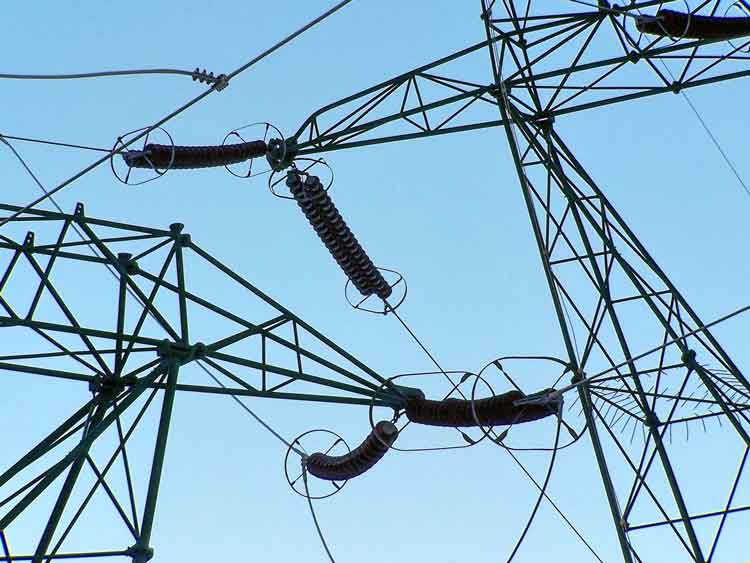DenmarkÂ’s ambitious EV plans
For all their potential, electric cars have always been the subject of more talk than action, and only a handful are on the road in Denmark. But now the biggest Danish power company is working with a Silicon Valley start-up in a $100 million effort to wire the country with charging poles as well as service stations that can change out batteries in minutes.
The government offers a minimum $40,000 tax break on each new electric car — and free parking in downtown Copenhagen.
But even in Denmark, one of the most environmentally conscious nations in the world, skepticism abounds. It is not clear that car buyers can be persuaded to make the switch.
“There is a psychological barrier for consumers when their car is dependent on a battery station,” warned Henrik Lund, a professor of energy planning at Aalborg University. “It’s risky.”
The Silicon Valley company, Better Place, is making a big push in Denmark and in Israel. That makes those two countries the worldÂ’s most important test cases for the idea that electric motors and batteries can supplant the petroleum-burning engines that have powered cars for more than a century.
The experiment has other implications beyond the borders of this Scandinavian nation of 5.5 million. That is because Denmark is trying to do more than simply move away from the internal combustion engine.
By revamping the power grid, Dong Energy, Better PlaceÂ’s partner and the biggest utility in Denmark, wants to power the anticipated fleet of electric cars with wind energy, which already supplies nearly 20 percent of the countryÂ’s power.
With Better Place and the smart grid working together, cars would charge up as the winds blow at night, when power demand is lowest. Charging would soak up the utilityÂ’s extra power and sharply shrink the carbon footprint of electric vehicles.
“We’re the perfect match for a windmill-based utility,” said Shai Agassi, Better Place’s founder and chief executive. “If you have a bunch of batteries waiting to be charged, it’s like having a lot of buckets waiting for rain.”
The Danes will be promoting their electric car ambitions when they hold an international meeting in Copenhagen intended to make progress on a new agreement to combat global warming.
“We want to be a test and laboratory country for electric cars, hybrid cars and other new technology,” said Lars Barfoed, the Danish minister of transport. “And as host of the climate change conference, that’s made us feel responsible and want to show the world we can do something.”
Mr. Agassi, a press-smart Israeli-American entrepreneur who was formerly a top executive at the software giant SAP, has cast his companyÂ’s efforts in moral terms, because of the large contribution that gasoline and diesel cars make to global warming. But so far, the results are falling short of the rhetoric.
Back in January, Mr. Agassi promised that Denmark would have 100,000 charging spots in place and several thousand cars on the road by 2010. But with that deadline approaching, no Better Place cars are on the road and only 55 charging spots are ready.
According to Better Place, 2011 has always been the target for its mass debut, and that has not slipped. The company plans a road test of electric cars during the climate conference.
In addition to the charge points, Better PlaceÂ’s vision calls for a network of stations where a robotic device could replace a battery in less time than it takes to fill a tank of gas.
These switching stations are needed because batteries have a limited range of about 100 miles, and recharging takes up to five hours, so changing batteries en route would make long journeys more convenient.
Consumers would buy the cars but get batteries from Better Place and pay a fee for the miles they drive, relying on the charging stations for local driving and the switching stations for longer trips.
But even local supporters of Better Place worry that the switching stations, which could cost as much as $1 million each to build, are impractical, largely because the stations may need to stock a wide range of batteries to accommodate cars from different manufacturers.
“I’m skeptical about the infrastructure,” said Klaus Bondam, Copenhagen’s mayor for technical and environmental administration. “It won’t work unless it’s standard on every electric vehicle produced.”
So far, only one automaker, Renault Nissan, has agreed to make cars that work with Mr. Agassi’s switching stations. Getting more automakers on board is a looming obstacle for Mr. Agassi. Toyota, the market leader in hybrid cars, “sees no clear business advantage for us with Better Place,” said Graham Smith, senior vice president for external affairs at Toyota Motors Europe.
Mr. Barfoed, the Danish transport minister, said that while the deal with Renault was a good start, “what about all the other cars? What about the competition?”
Mr. Agassi professes to be untroubled that carmakers are not rushing to sign up, and he rejects other criticisms of his plan, as well.
“In every industry, the incumbent always said it’ll never change,” he said. “The mainframe guys said people will never need PCs.”
Jens Moberg, a former Microsoft executive who is the chief executive of Better Place Denmark, acknowledges the challenges and concedes that, aside from a few demonstration sites, little infrastructure has been put in place so far.
“I believe the automakers will embrace electric vehicles on a large scale; it’s just a question of when,” Mr. Moberg said. Stocking different batteries “is a challenge, but we can handle it because we have a flexible design for the switching stations.”
“We will be ready for 2011 when Renault ships the car,” he added.
Perhaps the main reason to think electric cars might have a shot in Denmark is their remarkable tax advantage.
The country imposes a punitive tax of about 200 percent on new cars, so a vehicle that would cost $20,000 in the United States costs $60,000 here. For a quarter-century, electric cars have been exempt from that tax. But the models on the market were so limited in their capabilities that only 497 of them are registered in the entire country.
The combination of an advanced mass-market car from Renault Nissan and practical charging options from Better Place will be the first real test of whether a tax break that large is enough to force a shift. To stimulate the market, local and national governments in Demark are expected to buy many electric cars for their own use.
“The one factor that you can’t find on a spreadsheet is the willingness of the people in government to lead change,” Mr. Agassi said. “And in Denmark every single one of them is engaged and willing to do whatever it takes to get Denmark to be a leader in electric vehicles.”
Related News

Covid-19 is reshaping the electric rhythms of New York City
NEW YORK - At his post 150 miles up the Hudson, Jon Sawyer watches as a stay-at-home New York City stirs itself with each new dawn in this era of covid-19.
He’s a manager in the system that dispatches electricity throughout New York state, keeping homes lit and hospitals functioning, work that is so essential that he, along with 36 colleagues, has been sequestered away from home and family for going on four weeks now, to avoid the disease.
The hour between 7 a.m. and 8 a.m. once saw the city bounding to life. A sharp spike would erupt on the system’s…




